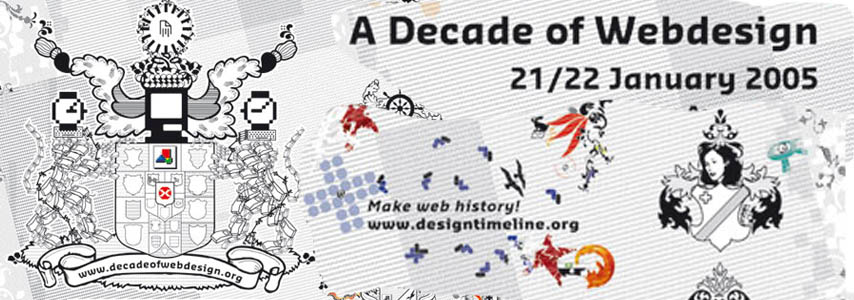Histories of Web Design
What do social, technical and cultural historians propose as ways to make an account of the last decade?
With Speakers:
Adrian Mackenzie, Peter Lunenfeld, Franziska Nori
Moderator: Matthew Fuller, PZI
Matthew Fuller is Lector in Media Design at the Piet Zwart Institute, Rotterdam where he is also Course Director of the MA in Media Design. He has been involved in a number of initiatives developing computational and networked digital media and is the author of ‘Behind the Blip, essays on the culture of software’, (Autonomedia, 2003) and the forthcoming, ‘Media Ecologies, materialist energies in art and technoculture’, (The MIT Press, 2005) He is currently working as part of a group developing software to ‘haunt’ a telephone exchange system for a UK hospital.
Meaning Structures
As automated site-design becomes increasingly important, the history of the interweaving of technology and culture up to the point of semantic engineering is mapped out.
With Speakers:
Steven Pemberton, Angela Beesley, Schoenerwissen/OfCD
Moderator: Richard Rogers
Richard Rogers is a university lecturer in New Media at the University of Amsterdam, and visiting professor in the Philosophy and Social Study of Science at the University of Vienna. He has been involved with design for an extensive period of time, working as researcher and tutor in Computer Related Design at the Royal College of Art (London), and as research fellow in Design and Media at the Jan van Eyck Academy (Maastricht). He is known as director of the Govcom.org Foundation (Amsterdam), a project that maps online debates on important social issues, visualised by maps that depict hyperlinks and/or discursive relations between leading parties per issue. He is author of Information Politics on the Web (MIT Press, 2004).
http://www.govcom.org
Modeling the User
Creativity and usability have often been set up as the two key poles of web design. This panel asks instead for a more sophisticated narrative about the change in understanding of user needs and desires over the last ten years.
With Speakers:
Helen Petrie, Geke van Dijk, Peter Luining
Moderator: Caroline Nevejan
Caroline Nevejan is director of research and development of the University of Professional Education of Amsterdam. She has been involved in designing digital culture for over 15 years. Her constant interest in media resulted in co-founding of the Society for Old and New Media in 1994, also known as Waag Society, which is an independent media lab and a knowledge centre with an interest in the future of public domain. As advisor and research associate in Performing Arts Labs (UK), she focused on changes for the performing arts with the emergence of new media. In 1999 she joined the Hogeschool van Amsterdam, where she currently directs the educational design process of the institution.
Digital Work
Can we redesign work? From economics, sociology and design, key observers and critics of the changing patterns of work in web design will comment on the decade and encourage you to have your say.
With Speakers:
Danny O’Brien, Michael Indergaard, Rosalind Gill
Moderator: Geert Lovink INC
Geert Lovink is the founder of the Institute of Network Cultures, an Amsterdam-based media research centre. Geert Lovink is a Dutch-Australian media theorist and activist. Since January 2004 appointed as senior researcher/associate Professor at Amsterdam University (HvA/UvA). He is organizer of conferences, festivals and (online) publications and the founder of numerous Internet projects such as www.nettime.org and www.fibreculture.org. He recently published Dark Fiber (2002), Uncanny Networks (2002) and My First Recession (2003).
http://www.laudanum.net/geert
Distributed Design
The web amplified an explosion of non-professional design. This panel will ask what happens to design once it becomes a non-specialist network process.
With Speakers:
John Chris Jones, Olia Lialina, Hayo Wagenaar
Moderator: Femke Snelting, PZI
Femke Snelting works at the Media Design department of the Piet Zwart Institute, Rotterdam where she is involved in various educational and research projects. She is a core member of the art and design team De Geuzen (a foundation of multi-visual research), with an interest in female identity, tactics for claiming space and place, archiving as a form of narration, and cartography as a means of relating interests, communities and disciplines. De Geuzen produced off- and on-line projects for Manifesta, Constantvzw and Impakt Festival.
http://www.geuzen.org


